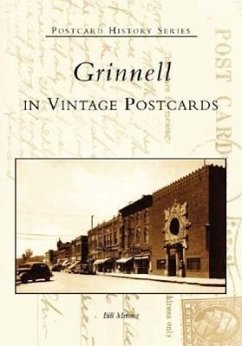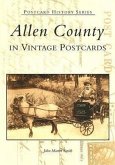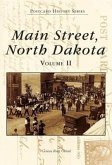From an abolitionist hotbed to the home of a prestigious liberal arts college, Grinnell, Iowa, is known across the country as a "jewel of the prairie." Originally conceived as a Congregationalist utopia, Grinnell developed a reputation as a highly-educated community with a wealth of incredible architecture. It was also a turn-of-the-century industrial hub, despite a population of less than 5,000, where buggies, early automobiles, and gloves were made. The historic postcards in this book recall a community on the verge of transition, from a small agriculture-based town on the prairie to a thriving center of commerce and higher education. They provide a remarkable glimpse of the buildings that make up what is now a "Historic Commercial District" on the National Register of Historic Places. Still others are visual reminders of great buildings-both in the community and on the Grinnell College campus-that now exist only in memory.








